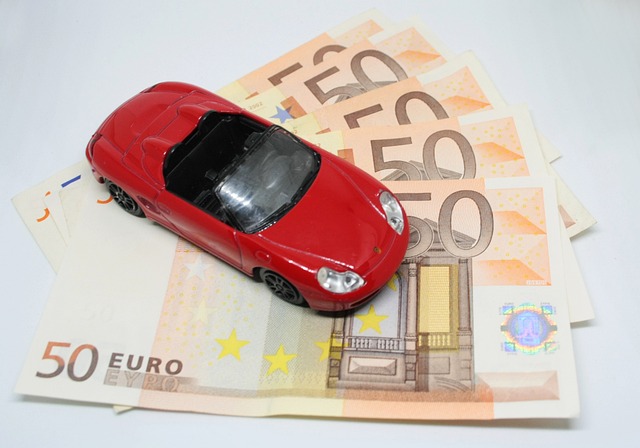Your Complete Guide to Buying Repossessed Cars
Repossessed cars offer an excellent opportunity for budget-conscious buyers to purchase quality vehicles at significantly reduced prices. When financial institutions reclaim vehicles due to loan defaults, these cars enter the market through various channels, creating opportunities for smart shoppers to find reliable transportation at competitive rates.

What Are Bank Repossessed Cars and How Do They Work?
Bank repossessed cars are vehicles that lenders have reclaimed when borrowers default on their auto loans. Financial institutions typically don’t want to hold onto these assets long-term, so they sell them quickly to recover their losses. This creates a win-win situation where banks minimize their financial exposure while buyers access affordable vehicles.
The repossession process begins when loan payments become severely delinquent, usually after 60-90 days of missed payments. Once repossessed, banks assess the vehicle’s condition and market value before deciding on the best selling method. Most repossessed cars are sold “as-is,” meaning buyers should thoroughly inspect vehicles before purchasing.
Where Can You Find Repossessed Cars for Sale?
Several venues offer repossessed cars for sale, each with distinct advantages. Auto auctions represent the most common marketplace, where dealers and private buyers compete for vehicles. Many banks also sell repossessed inventory directly through their websites or designated lots.
Credit unions often maintain lists of repossessed vehicles available to members and the general public. Online platforms have emerged as popular alternatives, allowing buyers to browse extensive inventories from multiple lenders simultaneously. Local classified advertisements and automotive websites frequently feature repossessed vehicles from various sources.
Government agencies occasionally sell repossessed vehicles seized in legal proceedings, though these represent a smaller portion of the market. Some auto dealerships specialize in selling repossessed inventory, offering financing options and limited warranties that traditional auctions don’t provide.
How Do Auction Cars Differ from Traditional Sales?
Auction cars operate under different rules than conventional vehicle purchases. Buyers typically have limited inspection time, often just minutes to assess a vehicle’s condition before bidding begins. Payment terms are usually immediate, requiring cash or certified funds within hours of winning a bid.
Auction environments can be fast-paced and competitive, requiring buyers to set firm budget limits beforehand. Unlike dealership purchases, auction sales are final with no return policies or warranties. However, auctions often feature detailed vehicle history reports and condition assessments to help buyers make informed decisions.
Registration fees, buyer’s premiums, and transportation costs add to the final purchase price. Successful auction buyers often have mechanical knowledge or bring experienced inspectors to quickly evaluate vehicles. The auction format can result in excellent deals, but inexperienced buyers may face unexpected surprises.
What Should You Know About Cars for Sale Through Banks?
Banks selling repossessed vehicles directly often provide more detailed vehicle information than auctions. These institutions typically offer clear titles and comprehensive documentation, reducing potential legal complications. Many banks allow extended inspection periods, giving buyers time to arrange professional evaluations.
Direct bank sales usually involve straightforward negotiations rather than competitive bidding. Buyers can often arrange financing through the selling institution, streamlining the purchase process. Banks may also provide limited warranties or guarantee clear titles, offering additional buyer protection.
However, bank inventories are typically smaller than auction selections, limiting choices. Prices may be higher than auction alternatives since banks eliminate auction fees and commissions. Some banks restrict sales to existing customers or require membership, though most welcome all qualified buyers.
Finding Bank Repossessed Cars in Your Local Area
Locating bank repossessed cars nearby requires strategic searching across multiple channels. Start by contacting local banks and credit unions directly, as many maintain repossessed vehicle inventories. Community banks often offer the most personalized service and flexible viewing arrangements.
Online resources have revolutionized the search process, with websites aggregating repossessed inventory from multiple lenders nationwide. Many sites offer geographic filters to display only vehicles in your area. Social media groups and local classified advertisements frequently feature repossessed vehicles from regional lenders.
Establishing relationships with local auction houses can provide advance notice of upcoming sales. Some auctioneers offer email alerts when specific vehicle types become available. Auto dealerships specializing in repossessed inventory often maintain waiting lists for customers seeking particular makes or models.
Pricing Comparison for Different Repossessed Car Sources
Understanding pricing structures across different sources helps buyers make informed decisions. Costs vary significantly depending on the selling venue and additional fees involved.
| Source Type | Average Savings vs. Retail | Additional Fees | Inspection Time |
|---|---|---|---|
| Bank Direct Sales | 15-25% | Minimal | Extended |
| Auto Auctions | 20-35% | Buyer’s Premium 5-10% | Limited |
| Credit Union Sales | 10-20% | Processing Fees | Moderate |
| Online Platforms | 15-30% | Platform Fees 2-5% | Variable |
| Dealer Lots | 10-25% | Documentation Fees | Extended |
Prices, rates, or cost estimates mentioned in this article are based on the latest available information but may change over time. Independent research is advised before making financial decisions.
Making Smart Decisions When Buying Repossessed Cars
Successful repossessed car purchases require careful preparation and realistic expectations. Always obtain vehicle history reports to identify potential issues like accidents, floods, or excessive wear. Budget for immediate repairs, as repossessed vehicles may have deferred maintenance issues.
Consider total ownership costs beyond the purchase price, including registration, insurance, and potential repairs. Arrange financing beforehand if needed, as some selling venues require immediate payment. Research fair market values using resources like Kelley Blue Book to establish reasonable bidding limits.
Repossessed cars represent excellent value opportunities for informed buyers willing to accept some risk. While these vehicles require more due diligence than traditional purchases, the potential savings make them attractive options for budget-conscious consumers seeking reliable transportation.




